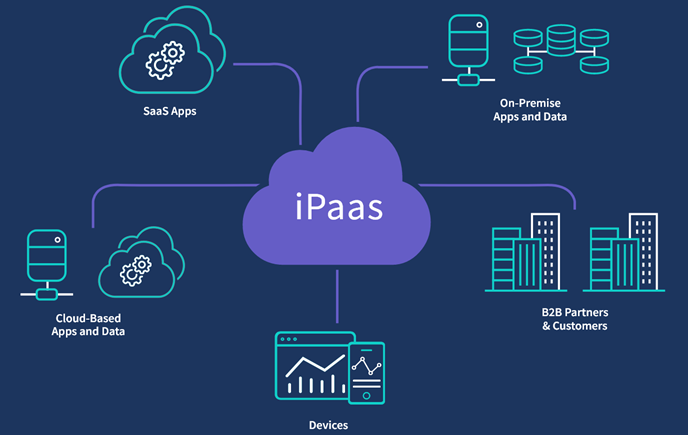The evolution of the iPaaS market is being shaped by a series of powerful and transformative Integration Platform as a Service Market Trends that are significantly expanding the scope and strategic importance of these platforms. The first and most significant trend is the evolution of iPaaS from a simple application integration tool to a comprehensive platform for enterprise-wide "hyperautomation." The leading iPaaS vendors are moving beyond just connecting systems and are now providing a full suite of automation capabilities. This includes not only the traditional API-based integration but also Robotic Process Automation (RPA) for automating manual, user-interface-based tasks, and business process management (BPM) tools for orchestrating long-running, human-in-the-loop workflows. This creates a single, unified platform where a business can automate any process, whether it involves connecting two cloud applications via API or automating a legacy desktop application with a software bot. This convergence of integration and automation is a major trend that is dramatically increasing the strategic value and total addressable market of the iPaaS platform.
A second major trend is the infusion of artificial intelligence and machine learning into the core of the iPaaS platform, creating what is often referred to as an "intelligent iPaaS." AI is being used in several powerful ways. The first is to simplify the development of integrations. AI-powered "wizards" can automatically discover the data fields in different applications and suggest the most likely data mappings, dramatically reducing the manual effort required to build a new integration. The second application is in operational intelligence, where machine learning models are used to monitor the health of all the integrations running on the platform, to proactively detect anomalies or potential failures, and to provide intelligent root cause analysis when a problem occurs. The third, and most transformative, application is using AI to add intelligence to the integration flows themselves. For example, an integration might use an AI model to perform sentiment analysis on an incoming customer support ticket before routing it to the appropriate agent. This trend is transforming iPaaS from a simple "data mover" to an intelligent "data processor."
A third key trend that is reshaping the market is the deep integration of API management capabilities into the iPaaS platform. In the modern digital economy, APIs are not just a technical integration method; they are products in themselves, a primary way for a business to securely expose its data and services to its partners, customers, and a broader ecosystem of developers. The leading iPaaS platforms have recognized this and have built a complete, end-to-end API lifecycle management capability. This allows a company to use the same platform to not only consume APIs from other applications but also to design, build, secure, publish, and manage their own APIs. The iPaaS platform becomes the central gateway for all API traffic, providing a single place to enforce security policies, monitor usage, and manage the entire API economy. This convergence of integration (iPaaS) and API management is a powerful strategic trend that positions the iPaaS platform as the central nervous system of a modern, API-driven digital business. The Integration Platform as a Service Market size is projected to grow to USD 211.36 Billion by 2035, exhibiting a CAGR of 28.87% during the forecast period 2025-2035.
Top Trending Reports -
China Mechatronics Robotics Courses Market



